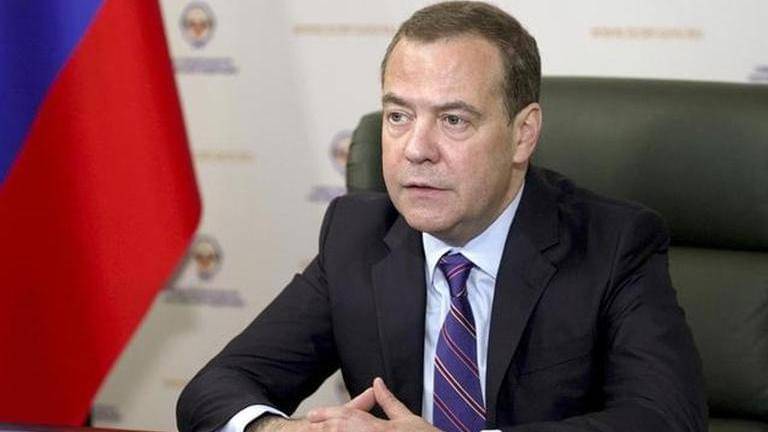Play all audios:
On Friday, Dmitry Medvedev, the Security Council Deputy Chairman of Russia, stated that any NATO peacekeepers deployed on the front line in Ukraine without Russia's consent and with
weapons in hand would be considered legitimate targets by their armed forces. Medvedev conveyed this message on his Telegram channel, alleging that the West's true objective is to
establish a ceasefire on the front line that benefits them. "They will be a legitimate target for our armed forces if they are placed on the front line without the consent of Russia
with weapons in their hands and directly threaten us," Medvedev wrote, as per a report from Sputnik news. "It is clear that the so-called NATO peacekeepers are simply going to
enter the conflict on the side of our enemies [Ukraine] … Unleash that very third world war, which they so fear when they talk," he added. In March, Hungarian Prime Minister Viktor
Orban asserted that the European Union had advanced to the point of deliberating on the possibility of deploying a peacekeeping military force in Ukraine. There have been a few instances
where NATO peacekeepers and the Russian military have come into direct conflict, particularly during the Balkan Wars of the 1990s. Here are some examples: In August 1995, NATO aircraft
bombed a Bosnian Serb military position near Sarajevo, killing several soldiers. The Bosnian Serbs responded by taking around 300 UN peacekeepers hostage, including British soldiers. NATO
responded by deploying ground troops to secure the release of the hostages. Notably, Russia was supporting Bosnia. In March 1999, Russian troops entered Kosovo without NATO's
permission, claiming they were there to protect ethnic Russian populations. This led to a standoff between Russian and NATO troops, with the latter eventually seizing control of the airport
in Pristina. In April 2000, Russian troops seized control of Pristina airport in Kosovo, just as NATO troops were arriving to take control of it. The situation was defused after negotiations
between NATO and Russia. In August 2008, Russian troops entered Georgia, claiming they were there to protect ethnic Russian populations. This led to a five-day war between Russia and
Georgia, with NATO countries providing humanitarian aid and diplomatic support to Georgia.

